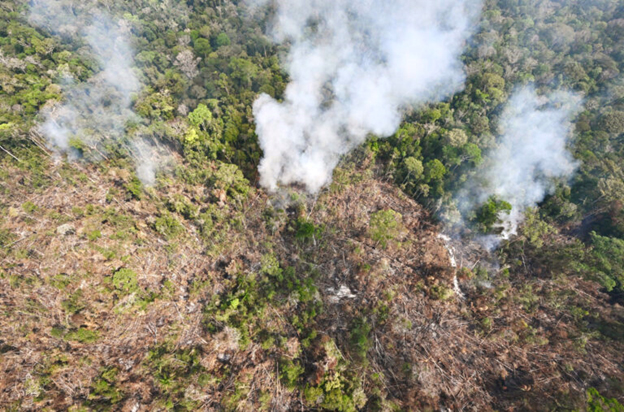If Guyana’s giant neighbour to the south, Brazil, has won considerable global attention as much to the fact of its vast oil reserves as for the inclusion of a substantial chunk of the Amazon rainforest as part of its overall geographic space, the latter credential is not, universally, a virtue. Evidence of this is to be found in the fact that the environmental dynamics of Brazil’s geographic space, which includes a portion of the world’s largest and best-known rainforest, does not always redound to its advantage.
The proverbial ‘sting in the tail’ is manifested in the Amazon’s environmental tantrums that, in more ways than one, redounds to the considerable discomfort and damage for South America’s largest country. An article published in the Tuesday August 20th issue of The Jamaica Gleaner, – ‘Brazilians ‘struggling to breathe’ as Amazon burns’ underscores the reality that Brazil is ‘hosting’ one of the seven natural wonders of the world, and as the lungs of the planet, at a considerable cost.
As The Gleaner article reports, Brazil has long had to endure episodes of deforestation with interludes of deforestation on account of illegal fires – most recently “in the municipality of Labrea, Amazonas State” that left hideous gouges of deforestation. The latest of these occurred in August, according to The Gleaner report, causing residents of Porto Velho in the Brazilian Amazon to have “barely seen sunlight in days as a thick cloud of smoke from forest fires enveloped their city.”
More worrying is what the Gleaner article refers to as the resulting “concentration of cancer-causing micro-particles known as PM2.5” which it says recently reached “56.5 micrograms per cubic meter of air in Porto Velho – 11 times more than the limit recommended by the World Health Organization.” The Guardian article, reportedly using data collected by satellites from Brazil’s INPE Space Research Institute, says Rondonia, one of the 26 states of Brazil, located in the northern subdivision of the country has recently had its worst month of July for forest fires in nineteen years with 1,618 confirmed outbreaks.





